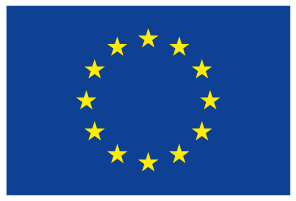Spain
- Type : Energy planning, Project
- Size : Regional
- Area : Industrial, Residential, Utility
Environmental benefit
A master plan for creating a hydrogen valley in Spain
Share
Spain
- Type : Energy planning, Project
- Size : Regional
- Area : Industrial, Residential, Utility
Environmental benefit
Discover this use case online
In Spain, hydrogen technologies are also widely recognized and accepted as a tool with great potential to achieve the objectives of sustainability in the energy and transport sectors. The hydrogen strategy of Aragon then consists of plans for the production, storage, and distribution of hydrogen as well as the development of hydrogen applications. To execute the stategy, a lot of hydrogen projects (51) are established. Below, a short overview is given of several interesting activities in the region:
In the field of hydrogen production, Aragon has some strengths: abundant renewable resources: sun, wind, water and territory, taking place a surplus electrical renewable production in the region. In this scenario, the Hydrogen Foundation in Aragon, as the driving force in hydrogen technologies in the region, is supported by the most important energetic companies of the region.
Regarding fuel cells, Aragon has research groups working on PEM and SOFC fuels development. In addition, Aragon’s research centres maintain a good relationship with their Spanish and European counterparts, and have participated in several relevant R&D projects on fuel cells with them.
Last, but not least, in Aragon the automotive sector is one of the most important industrial sectors. With regards to infrastructure, Aragon owns the first Spanish hydrogen highway (Zaragoza-Huesca) and training circuits (Motorland Technology Park) that provide ideal conditions to place Aragon as a reference on the national and European hydrogen vehicle map. The ITHER project was based on the hydrogen production using renewable energy sources in order to use ‘t in an automotive. Because of this project, a hydrogen refuelling station started to operate at the Walqa Technology Park in June 2010. In addition, a second hydrogen refuelling station was built in Zaragoza on the occasion of the celebration of the Expo Zaragoza 2008, where three public buses powered by hydrogen were used for the event.
 R-ACES has received funding from the European Union’s Horizon 2020 research and innovation programme under grant agreement N° 892429
R-ACES has received funding from the European Union’s Horizon 2020 research and innovation programme under grant agreement N° 892429
In Spain, hydrogen technologies are also widely recognized and accepted as a tool with great potential to achieve the objectives of sustainability in the energy and transport sectors. The hydrogen strategy of Aragon then consists of plans for the production, storage, and distribution of hydrogen as well as the development of hydrogen applications. To execute the stategy, a lot of hydrogen projects (51) are established. Below, a short overview is given of several interesting activities in the region:
In the field of hydrogen production, Aragon has some strengths: abundant renewable resources: sun, wind, water and territory, taking place a surplus electrical renewable production in the region. In this scenario, the Hydrogen Foundation in Aragon, as the driving force in hydrogen technologies in the region, is supported by the most important energetic companies of the region.
Regarding fuel cells, Aragon has research groups working on PEM and SOFC fuels development. In addition, Aragon’s research centres maintain a good relationship with their Spanish and European counterparts, and have participated in several relevant R&D projects on fuel cells with them.
Last, but not least, in Aragon the automotive sector is one of the most important industrial sectors. With regards to infrastructure, Aragon owns the first Spanish hydrogen highway (Zaragoza-Huesca) and training circuits (Motorland Technology Park) that provide ideal conditions to place Aragon as a reference on the national and European hydrogen vehicle map. The ITHER project was based on the hydrogen production using renewable energy sources in order to use ‘t in an automotive. Because of this project, a hydrogen refuelling station started to operate at the Walqa Technology Park in June 2010. In addition, a second hydrogen refuelling station was built in Zaragoza on the occasion of the celebration of the Expo Zaragoza 2008, where three public buses powered by hydrogen were used for the event.
